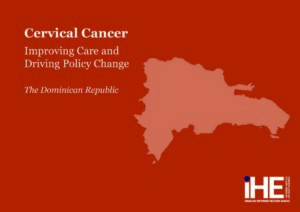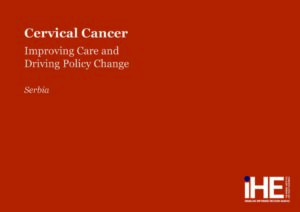Hofmarcher T, Keel G, Lindgren P
The burden of cancer in Asia-Pacific
This is the first sub-report of the main report “Cancer care and access to cancer drugs in Asia-Pacific”. It describes the disease burden of cancer in 14 countries and locations (called “markets” in the report) in Asia-Pacific. They are grouped into 7 high-income markets (Australia, Hong Kong, Japan, New Zealand, Singapore, South Korea, Taiwan) and 7 middle-income markets (China, India, Indonesia, Malaysia, the Philippines, Thailand, Vietnam).
The sub-report provides a comparative analysis of the 14 markets. The main findings are:
1. Cancer is currently the leading cause of death in most high-income markets. It will increasingly become a major public health issue in middle-income markets based on current trajectories and experiences from other regions of the world.
2. The number of newly diagnosed cancer cases has increased from 6.6 million to 7.8 million between 2012 and 2018 in Asia-Pacific. A key driver in this development is population aging, which is taking place at an unprecedented rate across the region.
3. Outcomes of cancer patients differ greatly across Asia-Pacific. For every 100 patients diagnosed with cancer, around 50-65 of them survive in high-income markets as compared to 30-40 in middle-income markets. Recent developments also indicate that the situation for cancer patients in high-income markets continues to improve, while patient outcomes in middle-income markets are at best stagnating.
4. Predictions of the future cancer burden indicate increases in the number of newly diagnosed cases and deaths by around 50-60% until 2040 across Asia-Pacific.
5. Advances and investments in all areas of cancer care – prevention, screening, diagnosis, treatment – are needed to meet the challenges brought upon by the demographic development.
6. A clear prioritization of effective and comprehensive cancer control efforts could spare millions of people from getting cancer and simultaneously improve the lives of the millions of cancer patients over the coming decades. To this end, the WHO advocates National Cancer Control Programs (NCCP) to tackle cancer in a strategic way.
The report was funded by Merck Sharp & Dohme (MSD). Responsibility for the analysis, interpretations, and conclusions, as well as errors or omissions lies solely with the authors.
Previously published IHE Reports on cancer care and access to cancer drugs in Asia-Pacific:
Cancer care and access to cancer drugs in Asia-Pacific – Introduction
IHE Report 2021:3a, IHE: Lund, Sweden
Cancer care and access to cancer drugs in Asia-Pacific – Executive summary
IHE Report 2021:3b, IHE: Lund, Sweden
For more information, please contact Thomas Hofmarcher
IHE Report 2021:3c, IHE: Lund, Sweden


